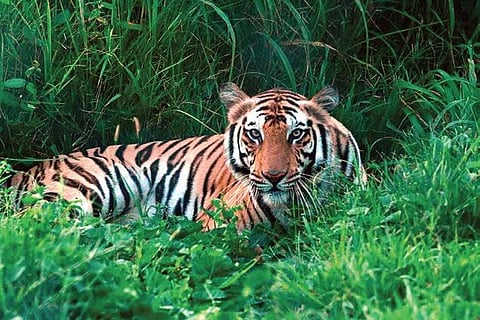

BENGALURU: Zoos in the state are worried over the Karnataka Prevention of Slaughter and Preservation of Cattle Bill, 2020, passed in the assembly on Wednesday.
They are now waiting for the rules to be framed before deciding the next course of action.The bill has redefined the cattle, from the 1964 one.
Earlier, it specified cows, now it includes all cattle. It has, however, exempted the slaughter of bulls and buffaloes above the age of 13 and those below 12, which are ill and certified by a veterinary officer.
“We have been following similar guidelines while procuring beef for the carnivores. We were not procuring milking cows. Tenders were issued and finalised for buffaloes and bulls. This would be followed now also. However, a final word from the government is still awaited,” said an official from the Zoo Authority of Karnataka.
The zoos need large amounts of beef daily to feed the tigers, lions and leopards. All zoos procure beef from certified suppliers, six days a week (not Tuesday). Bannerghatta Biological Park needs around 600 kg a day, while Mysuru Zoo needs around 350 kg.
“The new bill has led to some uncertainty, but we cannot comment till the rules are framed. There are many unanswered questions and we need clarity,” the official added.
Some officials from the Zoo Authority and the Animal Husbandry Department have expressed their concern about the method of certification.
They point that the pressure on others, apart from government veterinarians, will increase to give slaughter permission, which could also lead to illegal practices.
There are many such grey areas which have been left unattended.
Animal Husbandry and Fisheries Minister Prabhu Chauhan said, “The new bill, an amendment to the 1964 one, specifies what can be slaughtered and what are exempted. The earlier exemptions will continue.”